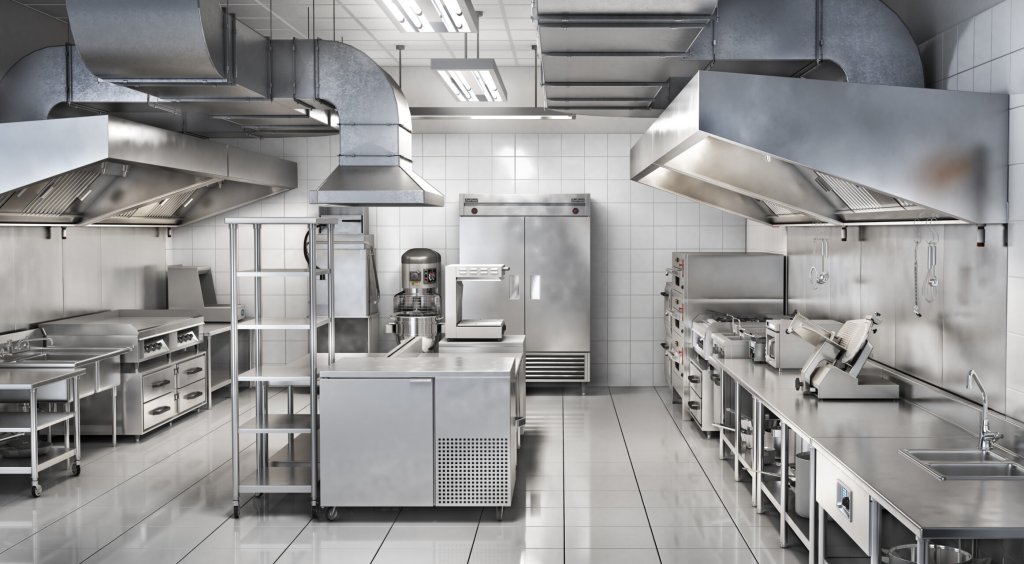There are many gross things the commercial kitchens can conceal which are not apparent at first glance. Even a clean-looking kitchen can have nooks and crevices that are not clean and friendly to diners visiting the cafe or restaurant or the kitchen team working in the space.
A clean cooking area is vital to running a safe and profitable restaurant or kitchen-based business, and hygiene is essential for customer health and well-being. No one will visit somewhere again if they have felt sick after eating there. So you are no doubt wondering what dirt, grime and other nasties can linger and grow on kitchen surfaces that might not be so obvious. We’ve added a list below of kitchen-enemies high on the list that needs to be tackled for everyone’s safety.
Eliminating these will maintain your space at a high level and functioning, while also keeping everyone who eats from and works in the kitchen healthy.
Bacteria is Enemy Number One
It’s common knowledge that many illnesses are caused by bacteria, with none more easily spread than from eating contaminated food. Think E-coli, salmonella, listeria and many more food poisoning-inducing and harmful bacteria.
This makes it all the more important to establish great cleaning habits to deter bacteria growth in any way possible, the easiest of which is having a regular cleaning schedule and professional cleaning support. Implementing proper hygiene systems to avoid bacteria growth should be your primary concern when running a commercial kitchen.
A few areas that may often be overlooked are known to harbour bacteria and cause easy cross-contamination. It is estimated, for example, that a kitchen chopping board is covered with more bacteria than a toilet seat – gross to think about! And what about sponges and washing brushes that touch nearly everything in the kitchen?
These are just a few of many kitchen essentials known to accumulate bacteria and contaminate everything they touch. Now increase that exponentially to all kitchen surfaces. A regular cleaning and sanitation routine can help to reduce this risk for all of these. For the chopping boards, in particular, it’s as simple as washing with hot soapy water and a run in a hot industrial dishwasher at 55-75° celsius to eliminate harmful organisms.
Grease and Residue
From countertops, range hoods, and virtually every other surface in a kitchen, there can be a buildup of grease and residue after a day of cooking. This comes from steam, oil and fats heated on the stove that becomes airborne and falling to stick on surfaces. It’s crucial, therefore, to wipe and degrease equipment and surfaces to reduce this disgusting and potentially dangerous coating.
Not only can grease buildup hold bacteria like salmonella and E. coli, but it can also pose a real threat of fire that can catch quickly and set an entire kitchen ablaze. In addition, left to its own devices, grease can also develop a potent odour, which can stink out a kitchen and make working in there an overwhelming task. Finally, grease, grime, and residue can also shorten the lifespan of appliances costing more money in replacements and keeping the kitchen running at capacity.
Rotten Food Lingering
A sink is a place for plates and dishes to get clean, but often the food scraps stuck on surfaces can accumulate, making the sink one of the dirtiest areas of a commercial kitchen. It’s vital to tackle this head-on, ensuring the sink is cleaned regularly, and there are no blockages of food scraps and buildup in the pipework or drains. If a pungent odour comes from the sink, it often comes from accumulated food.
This rotting and decomposing vegetable and meat mix is once again a breeding ground for bacteria. Add to that grease or grime that clings to the water and dishes, and cross-contamination is a near certainty. Cleaning is – as always – the saviour in this instance too. And it’s not just the sink that needs to be cleaned and sanitised; the pipes and drains also need regular attention. This is a job that can be tackled with a Kitchen deep clean rather than in a daily cleaning routine, but one that is good to be aware of when the signs and smells of insufficient drainage and food blockage start to appear.
Pests and Rodents
Creepy crawlies in your kitchen are a real and present health hazard and one that can be difficult to eliminate. Once rats, mice, cockroaches and other rodents take hold, they can leave many potential threats behind them. These include urine and faeces that can contaminate food and water while transmitting a range of genuinely horrifying diseases and food-borne illnesses, including conditions such as hantavirus, leptospirosis, lymphocytic choriomeningitis (LCMV), Tularemia and Salmonella.
Avoid your kitchen becoming a pest haven and hire a cleaning company and pest controller who can eliminate any current pest issues and prevent future infestations that can cause problems. Regular inspections and treatments will also help you avoid other problems that pests bring. Think property impairment that can shut you down as pests are known to cause damage to electrical cables and wires while creating structural issues when they burrow and nest in walls and spaces. Both of these can cause dangerous fires and electrical malfunctions. Add to that dry store’s destruction and food contamination that causes health issues. There is no better reason to get cleaning and pest controllers to help in your kitchen.
Cleaning is Crucial
A cleaning schedule and regular professional cleaning are necessary to maintain proper hygiene, a high level of cleanliness, and excellent sanitation that will keep clients and staff safe while ensuring your venue can stay open and operating.
A neat and organised kitchen maintained to high cleanliness standards allows your team and the kitchen to work efficiently while prolonging every kitchen appliance’s lifespan. Most importantly, you will provide your customers with clean food that tastes great, which means they will repeatedly return – which is what a commercial kitchen business is all about.

